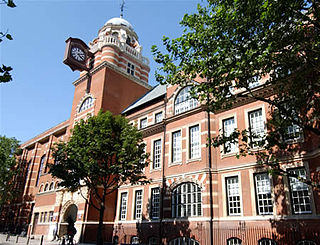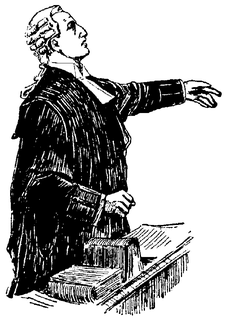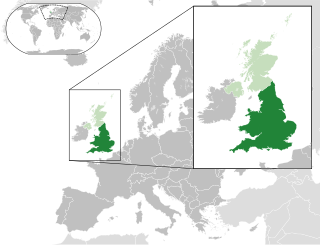
The Universities and Colleges Admissions Service is a UK-based organisation whose main role is to operate the application process for British universities. It operates as an independent charity, funded by fees charged to applicants and to universities, plus advertising income, and was formed in 1992 through the merger of the former university admissions system UCCA and the former polytechnics admissions system PCAS.

The Joint University Programmes Admissions System, or commonly known as JUPAS (聯招), is a unified system for applying for full-time undergraduate programmes in Hong Kong. In 2017 admission, all government funded degrees and sub-degrees provided by University Grants Committee (UGC) member institutions, and most of other full-time degrees provided by institutions in Hong Kong are under the application system in JUPAS.
The Ontario Universities' Application Centre (OUAC) is a non-profit organization based in Guelph that processes online applications for admission to universities in Ontario, Canada. It was founded in 1971 by the Council of Ontario Universities and the Ontario Universities' Council on Admissions, to reduce the duplication and costs involved in processing applications.
Early decision or early acceptance is a common policy used in college admissions in the United States for admitting freshmen to undergraduate programs. It is used to indicate to the university or college that the candidate considers that institution to be his or her top choice. Candidates applying early decision typically submit their applications by the end of October of their senior year of high school and receive a decision in mid-December. In contrast, students applying "regular decision" typically must submit their applications by January 1 and receive their admissions decision by April 1.
University admission or college admission is the process through which students enter tertiary education at universities and colleges. Systems vary widely from country to country, and sometimes from institution to institution.
The Postgraduate Certificate in Laws is an intensive one-year full-time professional legal qualification programme in Hong Kong. It allows graduates to proceed to legal training before qualifying to practice as either a barrister or a solicitor in Hong Kong. The "LL." of the abbreviation for the certificate is from the genitive plural legum. The programme can be seen as the equivalent of the Legal Practice Course (LPC) or the Bar Professional Training Course (BPTC) in England and Wales, or the Certificate in Legal Practice (Malaysia) (CLP) in Malaysia which focuses heavily on practical and procedural issues in legal practice, unlike a first degree in law.
Pre-medical is an educational track that undergraduate students in the United States and Canada pursue prior to becoming medical students. It involves activities that prepare a student for medical school, such as pre-med coursework, volunteer activities, clinical experience, research, and the application process. Some pre-med programs providing broad preparation are referred to as “pre-professional” and may simultaneously prepare students for entry into a variety of first professional degree or graduate school programs that require similar prerequisites.

The Common Professional Examination/Graduate Diploma in Law (CPE/GDL) is a postgraduate law course in England and Wales that is taken by non-law graduates wishing to become either a solicitor or barrister in England and Wales. The course thus allows non-law students to convert to law after university ; it is also commonly known as a "law conversion course". Regulated by the Solicitors Regulation Authority, the course is designed as an intense programme covering roughly the same content as a Law degree LL.B (Hons) and the main goal is to allow people with a greater variety of educational backgrounds into the legal profession.
College application is the process by which individuals apply to gain entry into a college or university. Although specific details vary by country and institution, applications generally require basic background information of the applicant, such as family background, and academic or qualifying exam details such as grade point average in secondary school and standardized testing scores.

Barristers in England and Wales are one of the two main categories of lawyer in England and Wales, the other being solicitors. Barristers have traditionally had the role of handling cases for representation in court, both defence and prosecution.
College admissions in the United States refers to the process of applying for entrance to institutions of higher education for undergraduate study at one of the nation's colleges or universities. For people intending to go immediately into college after high school, the college search usually begins in the eleventh grade of high school with most activity taking place during the twelfth grade, although students at top high schools often begin the process during their tenth grade or earlier. In addition, there are considerable numbers of students who transfer from one college to another, as well as adults older than high school age who apply to college. In 2019, there were allegations of a bribery situation which over 50 people were charged for a cheating scheme that appears by the U.S. government to have been in operation for 8 years straight.
Rolling admission is a policy used by many colleges to admit freshmen to undergraduate programs. Many law schools in the United States also have rolling admissions policies. Under rolling admission, candidates are invited to submit their applications to the university anytime within a large window. The window is usually over six months long, and some schools do not have a previously specified end date. The university will then review the application and notify the applicant of their decision within a few weeks from submission.
A pupil master or in the case of a female barrister, 'pupil mistress' etc., is the former name given to an experienced barrister who a pupil shadows during their pupillage. The term pupil master or mistress has now been replaced by the term 'pupil supervisor'. Barristers are called to the Bar via one of the four Inns of Court upon successful completion of the BPTC and having undertaken a required number of "qualifying sessions" in their chosen Inn of Court. In most cases, the newly called barrister is then required to undertake training for a period of at least a year before the barrister can start their own private practice. This training period is known as pupillage, usually split into two periods of six months known as "sixes". The first "six" is a non-practising six, during which the pupil will shadow their pupil master; the second is usually a practising "six", when the pupil, with their pupil master's permission, can undertake the supply of legal services and exercise rights of audience in court. Occasionally, a pupil barrister may undertake a third "six", extending the training period a further six months. At the end of pupillage, to continue practising the law, a barrister may attempt to become a tenant in a set of barristers' chambers, or find a position as an employed barrister.
The University of the Philippines College Admission Test, commonly known as UPCAT, is part of the admission requirements of the University of the Philippines, administered to graduates of Philippine and foreign high schools.
A training contract is a compulsory period of practical training in a law firm for law graduates before they can qualify as a solicitor in the United Kingdom (UK), the Republic of Ireland, Australia or Hong Kong, or as an advocate and solicitor in Singapore. During the training period, the participant is known as a trainee solicitor or trainee lawyer.
The Norwegian Universities and Colleges Admission Service is a Norwegian government agency responsible for application and admission to all public universities and university colleges in Norway for entry level degrees, either Bachelor degrees for liberal studies and some professional studies, as well as certain Master level programs in professional studies. The agency is subordinate to the Norwegian Ministry of Education and Research and is managed by the University of Oslo.
The Ontario Graduate Scholarship(s) (OGS) program offers, merit based, annual scholarships to eligible students who will pursue graduate studies in order to complete a master's degree, PhD or doctorate at a university in Ontario, Canada.
CASPA or the Centralized Application Service for Physician Assistants is an application service for graduate-level PA programs. Similar to the Common Application used by some undergraduate institutions and the American Medical College Application Service used by medical schools, CASPA allows students to submit one application to multiple schools. The CASPA application platform is a service offered by the Physician Assistant Education Association (PAEA).

The Bar Professional Training Course or BPTC is a postgraduate course which allows law graduates to be named and practise as barristers in England and Wales. The thirteen institutes that run the BPTC along with the four prestigious Inns of Court are often collectively referred to as Bar School.





